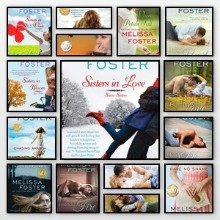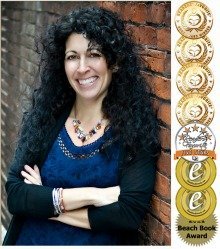I’m a line straddler, and I love it!
Get your mind out of the gutter. I’m talking about the lines of publishing.
Those who know me, or have read my blog posts, know that I don’t believe in drawing lines in the sand. An author is an author, no matter how they publish. However, there are definite differences in the avenues to publication.
I’m often asked if authors should query agents or publish independently, and that’s not a question I can answer for any writer. The answer must come from within. For me, I hope to straddle the independent and traditional lines of publishing.
I think there is much to be learned from traditional publishers—and yes, I hear your comments about how independent authors can make more money and sell more books while maintaining control of their product, but I believe there is value in both avenues, and I also believe there are many aspects of publishing that independent authors are not privy to, and might benefit from learning.
I’m not personally fearful of publishers changing my voice—I might learn how to be a better writer from their changes. I’m not worried about the prices being higher than indie books—I believe readers buy what they want to read. The waiting time is a bit painful for someone like me—oh ye of little patience—but I tell myself, perhaps it will be worth it.
If you are deciding whether to query or publish, here you might want to ask yourself.
Goals
What are your publishing goals? Do you hope to see your book on brick and mortar bookstore shelves or do you simply hope to sell books?
If you hope to see your book on the shelves of bookstores, what are your other goals? Even independent authors can get their books into Barnes and Noble bookstores. You cannot do so if you publish through CreateSpace, but you have a strong chance of succeeding if you use an independent distributor and are willing to increase your price and give B&N 55% of the revenue.
How patient are you? Querying agents and publishers takes time…oodles of time, and that’s just the beginning of the hurry up-and-wait process.
Most authors will wait 4–12 weeks to hear back from agents regarding their initial query, then there’s another 4–12 weeks of waiting while the agent reads the partial or full manuscript. If you are lucky enough to be offered representation, often there are revisions required before submitting to publishers—and that’s when the real wait comes in. Editors can take 8–10 weeks to read your manuscript, and if you think that once you have an agent, your manuscript is a shoe-in, you’re dead wrong. It simply means you are above the rest—in the preferred read section.
If your manuscript passes muster, you then go through months of revisions—hurry up and wait—before publication. Read this post by Greenhouse Literary to get a feel for the waiting process.
Control
Are you willing to give up control of your cover, possibly your subplots, and your title? Yup, that can happen.
***
Wow, that seems like a lot of reasons not to try to traditionally publish, doesn’t it? After all, if you self-publish, you can do so in 24 hours and on your own terms.
Let’s look at another set of questions, and you might see why I’m pro both independent and traditional publishing.
Why
Why do you want to publish independently? Is it because you do not want to wait through months of editorial changes? Do you think your book is just fine the way it is?
Is it the work that’s making you say, “No way!”? Is it the idea that a strong editor might redline a 15-page document indicating changes to your manuscript?
Or is it a rush to publish?
Perhaps you have had your book edited and you feel it doesn’t need anything further.
Many people who call themselves editors have no real editorial experience. They’ve got a degree in English (or not), and they’ve written newsletters for companies, or they’re avid readers and feel they’re capable of “knowing” what’s required for a strong story. Guess what—most don’t. And no, beta readers and critique partners cannot replace a strong developmental edit.
While it’s true that sometimes traditionally published books are too dry, or they aren’t risky enough, a poorly edited book is far worse than a slow story. Don’t judge an editor by their price—some will charge $2000 but have no experience to back it up, while others will charge $1200 and can make your story shine.
Once you’ve worked with a strong developmental editor, you’ll never go back to a run-of-the-mill editor. That alone might be a good reason for some to strive for traditional publication, to hone their craft with experienced editors.
The “rush”
What’s the rush? Books should be the best they can possibly be before hitting the virtual shelves.

Marketing
Marketing is hard to do. However, in some cases having a big name publisher behind your book can help your book find its wings among readers that are not tuned in to the indie connections—there are thousands of readers that are not using social media. There is no guarantee that a publisher will do anything for the marketing of your book, but for some, traditional publishing is a smart marketing move.
Some of you simply want the thumbs up that comes with traditional publication, and guess what, that’s okay. We are all free to dream our own dreams and create our own paths. Don’t let anyone make you feel badly for wanting something on your own terms.
The choice to independently publish or traditionally publish your books is not an easy one, and there is no right or wrong answer. If you are an author, keep an open mind, do what is right for you at that moment in your life, and what is right for your specific manuscript. Some manuscripts are meant to be indie books, while others find homes with publishers.
As I always say, take the path that makes you the happiest. #YouMatter
Why did you choose your publishing route?
Melissa Foster is a New York Times & USA Today bestselling and award-winning author. She writes contemporary romance, new adult, contemporary women's fiction, suspense, and historical fiction with emotionally compelling characters that stay with you long after you turn the last page. Her books have been recommended by USA Today's book blog, Hagerstown Magazine, The Patriot, and several other print venues. She is the founder of the Women’s Nest, a social and support community for women, and the World Literary Café. When she's not writing, Melissa helps authors navigate the publishing industry through her author training programs on Fostering Success. Melissa has been published in Calgary’s Child Magazine, the Huffington Post, and Women Business Owners magazine.









 Melissa Foster is a New York Time and USA Today bestselling and award-winning author. She writes contemporary romance, new adult, contemporary women's fiction, suspense, and historical fiction with emotionally compelling characters that stay with you long after you turn the last page.
Melissa Foster is a New York Time and USA Today bestselling and award-winning author. She writes contemporary romance, new adult, contemporary women's fiction, suspense, and historical fiction with emotionally compelling characters that stay with you long after you turn the last page.